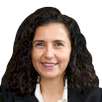GENEVA, Switzerland: In light of World Oral Health Day (WOHD), which is being celebrated today on 20 March, FDI World Dental Federation has released a statement that sums up how oral health behaviours have deteriorated during this time. One year into the pandemic, FDI councillors and members say that they are seeing first-hand the catastrophic aftermath of the virus on the health of people’s teeth and gingivae in dental practices around the globe.
“Let’s call it what it is: a dental disaster,” said FDI President Dr Gerhard Konrad Seeberger. “Restrictions have certainly played a part in oral health hesitancy, but they don’t tell the whole story.”
During the first wave of the COVID-19 outbreak, dental practices around the world were forced to close. For two to three months, all dental appointments had to be postponed or cancelled, except for urgent emergency treatments. The World Health Organization reported that oral health services were among the most affected essential health services because of the COVID-19 pandemic, 77% of countries reporting partial or complete disruption.
Between the first and second waves, dental practices in many countries were able to reopen. Dentists have always abided by the most stringent infection prevention and control protocols and have revised hygiene measures mandated by governments during the COVID-19 pandemic. In addition, a recent survey indicates that oral health professionals have significantly lower SARS- CoV-2 infection rates than other healthcare workers in most parts of the world. Despite this, many people have still avoided routine check-ups and only visit the dentist once they are in extreme pain. Many have developed advanced dental caries and related complications, including infections, which makes treatment more complex.
“Safeguarding oral health is of paramount importance to ensure general health, well-being and a good quality of life”—Dr Gerhard Konrad Seeberger
Today, dentists are confronting the fallout from a year of disrupted dental care. Dr Paulo Melo, an FDI councillor who teaches and practises dentistry in Oporto in Portugal, has seen a dozen high-risk patients who were afraid of being infected with SARS-CoV-2 and postponed their appointments. High-risk patients are encouraged to have a dental check-up every three to six months. Instead, many patients have waited nine months to a year or longer between appointments. Many have reported severe toothaches and complications, leading to extraction for some and endodontic treatment for others.
“During the pandemic, high-risk patients have tended to develop more than one problem, often exhibiting three or four at the same time because too much time has gone by without a check-up,” said Melo. “Problems typically include carious lesions and periodontal disease.”
“Dental caries that could have been treated with a simple restoration has now gone to the stage of apical periodontitis and abscesses, which call for more sophisticated treatment,” said Dr MK Vanishree, a lecturer in public health dentistry, based in Bangalore in India. “Patients should set aside their fear and not postpone essential, routine dental treatment.”
“One of the dramatic consequences of the pandemic is that oral health issues that were not considered urgent during the outbreak of the pandemic did in fact became urgent after having to wait two months to seek treatment,” said Dr Maria Fernanda Atuesta Mondragon, president of the Federación Odontologica Colombiana (Colombian dental federation) and an FDI councillor. “We’ve seen some patients undergoing orthodontic treatment who have lost the gaps that were created for their teeth to align, while others have developed significant periodontal issues.”
“Teenagers usually suffer from dental caries, and I’ve observed an increasing level of tooth decay in this age group,” said Dr Nahawand Abdulrahman Thabet, who practises in Cairo in Egypt and is an FDI councillor. “A 15-year-old patient of mine admitted he had been snacking more while stuck at home since the closure of his school. I imagine thousands of kids his age are in a similar situation.”
The pandemic’s repeated lockdowns, restrictions on people’s movements and work-at-home edicts have all contributed to shifting daily habits and behaviours, ultimately impacting on people’s oral health.
Modelling good oral care habits like day and night brushing is imperative, according to a global research study conducted by Unilever, which found that children mirror their parents’ behaviours to the detriment of their own health. Children are seven times more likely to skip brushing if their parents do not brush day and night. Surveyed dentists agreed that the change in children’s oral care habits stemmed from the change in parents’ routines. Despite the ongoing challenges with the pandemic, it is crucial for parents to prioritise their oral care routines as well as those of their children.
Seeberger emphasised that “people must not be afraid to visit the dentist. Safeguarding oral health is of paramount importance to ensure general health, well-being and a good quality of life”.
Tags:
GENEVA, Switzerland: The SARS-CoV-2 outbreak is causing significant disruption to dental practice worldwide. Oral health professionals, dental associations ...
LEIPZIG, Germany: In recent years, the dental industry’s approach to continuing education (CE) has often been focused on in-person learning opportunities ...
SHANGHAI, China: Owing to the coronavirus pandemic, which originated in the Chinese city of Wuhan and was first reported in December 2019, most dental ...
The countdown is finally over. Four years after its last in-person event, the FDI World Dental Congress is making a return. Dental Tribune International ...
SYDNEY, Australia: Organised annually by FDI World Dental Federation, the World Dental Congress is one of the most prestigious continuing education events ...
The common misconception that oral health is not interlinked with overall health is slowly being dispelled by dental professionals who continue to ...
Head and neck cancer may have drastic, long-lasting consequences, and dental professionals can play a crucial role in the patient’s treatment plan. Dental...
SYDNEY, Australia: To engage with aspiring dental professionals and students, FDI has launched the Young Dentists Forum, and the inaugural session will be ...
LEIPZIG, Germany: Breaking through the barrier between dentistry and medicine could be a crucial step towards better all-round health. Since the practice of...
As the elderly population continues to grow exponentially, it is now more important than ever to address certain challenges related to the oral and overall ...
Live webinar
Wed. 21 August 2024
9:00 am EST (New York)
Dr. Jim Lai DMD, MSc(Perio), EdD, FRCD(C)
Dr. Lars Rosén Christensen
Dr. Zoe Brookes, Prof. Colman McGrath, Prof. Michael McCullough



 Austria / Österreich
Austria / Österreich
 Bosnia and Herzegovina / Босна и Херцеговина
Bosnia and Herzegovina / Босна и Херцеговина
 Bulgaria / България
Bulgaria / България
 Croatia / Hrvatska
Croatia / Hrvatska
 Czech Republic & Slovakia / Česká republika & Slovensko
Czech Republic & Slovakia / Česká republika & Slovensko
 France / France
France / France
 Germany / Deutschland
Germany / Deutschland
 Greece / ΕΛΛΑΔΑ
Greece / ΕΛΛΑΔΑ
 Italy / Italia
Italy / Italia
 Netherlands / Nederland
Netherlands / Nederland
 Nordic / Nordic
Nordic / Nordic
 Poland / Polska
Poland / Polska
 Portugal / Portugal
Portugal / Portugal
 Romania & Moldova / România & Moldova
Romania & Moldova / România & Moldova
 Slovenia / Slovenija
Slovenia / Slovenija
 Serbia & Montenegro / Србија и Црна Гора
Serbia & Montenegro / Србија и Црна Гора
 Spain / España
Spain / España
 Switzerland / Schweiz
Switzerland / Schweiz
 Turkey / Türkiye
Turkey / Türkiye
 UK & Ireland / UK & Ireland
UK & Ireland / UK & Ireland
 Brazil / Brasil
Brazil / Brasil
 Canada / Canada
Canada / Canada
 Latin America / Latinoamérica
Latin America / Latinoamérica
 USA / USA
USA / USA
 China / 中国
China / 中国
 India / भारत गणराज्य
India / भारत गणराज्य
 Japan / 日本
Japan / 日本
 Pakistan / Pākistān
Pakistan / Pākistān
 Vietnam / Việt Nam
Vietnam / Việt Nam
 ASEAN / ASEAN
ASEAN / ASEAN
 Israel / מְדִינַת יִשְׂרָאֵל
Israel / מְדִינַת יִשְׂרָאֵל
 Algeria, Morocco & Tunisia / الجزائر والمغرب وتونس
Algeria, Morocco & Tunisia / الجزائر والمغرب وتونس
 Middle East / Middle East
Middle East / Middle East
:sharpen(level=0):output(format=jpeg)/up/dt/2024/07/Study-evaluates-primary-personality-types-among-dental-students.jpg)
:sharpen(level=0):output(format=jpeg)/up/dt/2024/07/Shutterstock_2330040761.jpg)
:sharpen(level=0):output(format=jpeg)/up/dt/2024/07/file-7.jpg)
:sharpen(level=0):output(format=jpeg)/up/dt/2024/07/Our-commitment-to-digital-dentistry-is-a-cornerstone-of-our-strategy.jpg)
:sharpen(level=0):output(format=jpeg)/up/dt/2024/07/Shutterstock_1051488260.jpg)








:sharpen(level=0):output(format=png)/up/dt/2023/07/DirectaDentalGroup_Logo_2023_03_2lines_lowres.png)
:sharpen(level=0):output(format=png)/up/dt/2024/01/ClearCorrect_Logo_Grey_01-2024.png)
:sharpen(level=0):output(format=png)/up/dt/2023/06/Align_logo.png)
:sharpen(level=0):output(format=png)/up/dt/2010/11/Nobel-Biocare-Logo-2019.png)
:sharpen(level=0):output(format=png)/up/dt/2022/10/DMP-logo-2020_end.png)
:sharpen(level=0):output(format=png)/up/dt/2021/02/logo-gc-int.png)
:sharpen(level=0):output(format=jpeg)/up/dt/2021/03/Dental-disaster_1125-x-668.jpg)
:sharpen(level=0):output(format=gif)/wp-content/themes/dt/images/no-user.gif)
:sharpen(level=0):output(format=jpeg)/up/dt/2020/06/FDI-offers-COVID-19-guidance-to-dental-professionals_1188x668.jpg)
:sharpen(level=0):output(format=jpeg)/up/dt/2020/07/asd.jpg)
:sharpen(level=0):output(format=jpeg)/up/dt/2020/03/COVID-19-causes-FDI-to-cancel-World-Dental-Congress-2020_780-x-439.jpg)
:sharpen(level=0):output(format=jpeg)/up/dt/2023/09/FDI-Sydney-2023_11.jpg)
:sharpen(level=0):output(format=jpeg)/up/dt/2023/09/FDI-to-welcome-the-world-of-dentistry-to-Australia_1-1.jpg)
:sharpen(level=0):output(format=jpeg)/up/dt/2023/09/Historically-oral-health-has-been-separated-from-the-rest-of-health-.jpg)
:sharpen(level=0):output(format=jpeg)/up/dt/2023/09/There-is-so-much-opportunity-to-improve-the-quality-of-life-of-patients-with-head-and-neck-tumours-2.jpg)
:sharpen(level=0):output(format=jpeg)/up/dt/2023/09/FDIs-Young-Dentists-Forum-empowers-future-leaders-in-dentistry.jpg)
:sharpen(level=0):output(format=jpeg)/up/dt/2017/08/DENT-MED-new-website_.jpg)
:sharpen(level=0):output(format=jpeg)/up/dt/2023/09/Maintaining-good-dental-and-oral-health-is-crucial-for-lifelong-quality-of-life.jpg)








:sharpen(level=0):output(format=png)/up/dt/2011/07/fdi.png)
:sharpen(level=0):output(format=jpeg)/up/dt/2024/05/FDI-World-Dental-Congress-2024-promises-great-continuing-education-and-networking-experience.jpg)
:sharpen(level=0):output(format=jpeg)/up/dt/2024/03/Shutterstock_1940444479.jpg)
:sharpen(level=0):output(format=jpeg)/up/dt/2024/01/New-journal-supplement-explores-the-role-of-mouthwash-in-oral-care.jpg)
:sharpen(level=0):output(format=jpeg)/wp-content/themes/dt/images/3dprinting-banner.jpg)
:sharpen(level=0):output(format=jpeg)/wp-content/themes/dt/images/aligners-banner.jpg)
:sharpen(level=0):output(format=jpeg)/wp-content/themes/dt/images/covid-banner.jpg)
:sharpen(level=0):output(format=jpeg)/wp-content/themes/dt/images/roots-banner-2024.jpg)
To post a reply please login or register